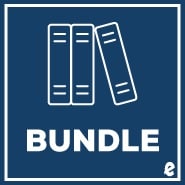Writing Communities is an exciting new text and reader that connects students to neighborhoods and writing courses to communities. Part One introduces students to academic reading and writing skills and prompts them to examine how their communities influence their writing. Part Two then shows students how their academic reading and writing skills can serve as a bridge into working—and producing writing—with the community. The text promotes involvement in and advocacy of social issues such as education, housing, and cultural justice, and assignments provide students with opportunities to put concepts into practice, such as setting up community writing groups, hosting events, and producing publications. A rich variety of readings ranging from personal narratives and poetry to essays and educational scholarship help show students the myriad ways in which writing makes things happen in the world.
The skills students learn from Writing Communities will prepare them for any collaborative work they may take on—in any community they may be a part of—in college and beyond.








